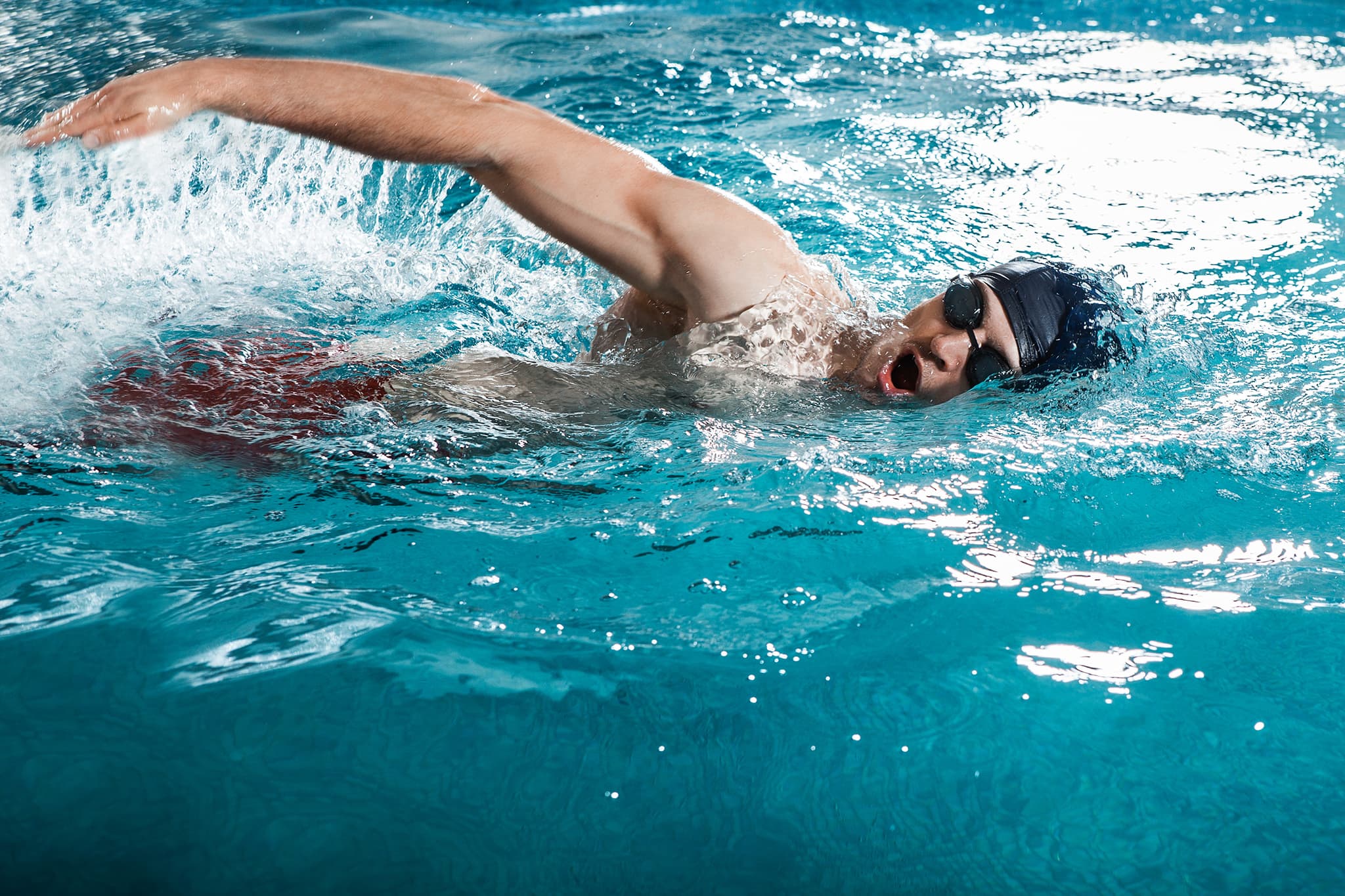Shoulder & Elbow Arthroscopic Surgery for Sports or Work Injuries
Shoulder and elbow injuries are common among overhead athletes or those that perform physical labor. In some cases, shoulder and elbow injuries can be treated with nonsurgical methods like medications, injections, physical therapy, and rest. However, if pain, dysfunction, or instability persists even with conservative treatment, arthroscopy may be recommended to help correct those problems.
Dr. Edward Joy is very experienced in working with athletes of all ages, including younger athletes. He has served as team physician for some of the local high schools - Andrew and Marist. He currently serves as the Physician Advisor for the Vikings Youth Hockey Club assessing acute injuries and created their concussion protocol. Additionally, Dr. Joy has over 10 years of experience with shoulder and elbow surgery, including arthroscopic procedures, and completed a fellowship in shoulder and elbow surgery at the world-renowned Cleveland Clinic. He creates individualized treatment plans for each patient based on their needs and injury, and only recommends surgery when he feels it is the best option.
Common Sports Injuries of the Shoulder & Elbow
The shoulder relies on a system of tendons, ligaments, and muscles for movement and stability. When any of these tissues are injured, it can be quite painful and may also lead to shoulder dysfunction or instability. There are also several muscles, nerves, ligaments, and tendons that come together at the elbow to facilitate motion and stabilize the joint.
There are several common shoulder injuries that affect athletes, including the following:

- Rotator cuff tears - The rotator cuff can take on a significant amount of stress, especially in athletes that throw, or working overhead. Rotator cuff tears tend to occur gradually, with symptoms getting progressively worse over time. In addition to pain, common symptoms include shoulder weakness and loss of range of motion.
- Labral tears - The labrum is a ring of tissue that surrounds the outer edge of the shoulder socket, helping to keep the shoulder stable. The shoulder’s ligaments also attach to the labrum. If the labrum tears, such as with a shoulder dislocation, it can cause shoulder instability, pain and weakness.
- Shoulder instability - Over time, the ligaments in the shoulder can loosen or stretch. The shoulder may feel like it slips out of its socket, particularly when throwing or performing overhead activities. This can be painful, and may also affect the athlete’s throwing velocity.
- UCL injuries - The ulnar collateral ligament, or UCL, is a ligament that runs along the inside of the elbow to stabilize the joint. Repetitive throwing motions can place stress on this ligament, causing inflammation, damage, or even tearing. This can cause pain, instability, and decreased throwing velocity. Note: Ulnar collateral ligament reconstruction, or the “Tommy John” procedure, is not performed arthroscopically.
- Osteochondritis dissecans - Osteochondritis dissecans is a condition affecting young athletes that occurs when a small segment of cartilage breaks off from the elbow joint due to lack of blood supply. In some cases, the bone may completely detach and float inside of the joint. This can cause joint pain, swelling, and a catching or locking sensation in the elbow.
- Frozen Shoulder - While most patients recover from frozen shoulder with conservative treatment, such as an injection and physical therapy, some may require arthroscopic release of scar tissue to regain their range of motion and decrease pain. This is typically performed as an outpatient procedure.
In all cases, Dr. Joy will evaluate the patient to determine a treatment plan, using imaging tests like MRIs to assess the injury. Many shoulder and elbow injuries can be managed without surgery, using treatments like anti-inflammatory medications, ice, physical therapy, activity modification, and injections. However, if symptoms persist or there is significant instability, arthroscopic surgery may be recommended.
Arthroscopic Surgery for Shoulder & Elbow Injuries
Dr. Joy uses arthroscopic surgery to both confirm the problem and repair it, if necessary. During an arthroscopic procedure, Dr. Joy inserts a small camera called an arthroscope into the joint to assess the injury. This allows him to view the inside of the shoulder or elbow without having to make a large incision.
If surgery is needed, Dr. Joy will insert surgical tools through small incisions to perform the procedure. This may include repairing torn tissue and removing loose tissue and bone fragments from the joint. This is typically done on an outpatient basis, and does not require an overnight hospital stay.
Recovering from Arthroscopic Shoulder & Elbow Surgery
Patients typically receive a nerve block prior to surgery, which helps to manage pain in the initial recovery period. Patients will also be given oral medications to help with pain for the first few weeks.
Each patient’s recovery plan will depend on the injury and what surgical repairs were needed. Dr. Joy evaluates each patient on an individual basis, and recovery plans are customized to their needs. Patients typically start with gentle exercises at home, then begin working with physical therapists on an outpatient basis after 4-6 weeks.
Return to sports will depend on the patient’s progress and the extent of repairs needed. Dr. Joy will advise when it is safe for a patient to return to sports activity.
Arthroscopic Shoulder & Elbow Surgery in Tinley Park, IL
Dr. Edward Joy is board certified and fellowship trained in shoulder and elbow surgery, and has extensive experience in treating athletes. He has worked with athletes on the high school and college level, as well as younger athletes. He creates individualized treatment plans for each patient with shoulder and elbow injuries, and only recommends surgery when necessary. If you would like to schedule an appointment with Dr. Joy, please call our office at (708) 429-3455 or request an appointment online.

